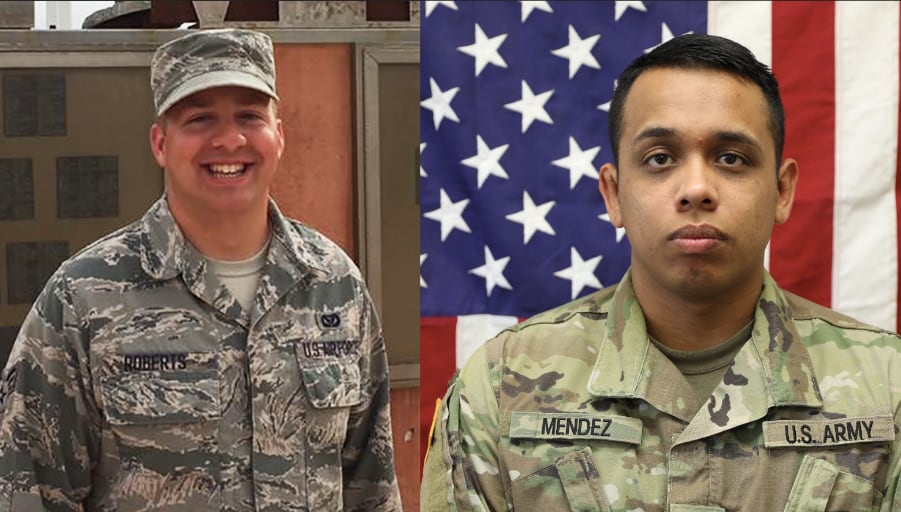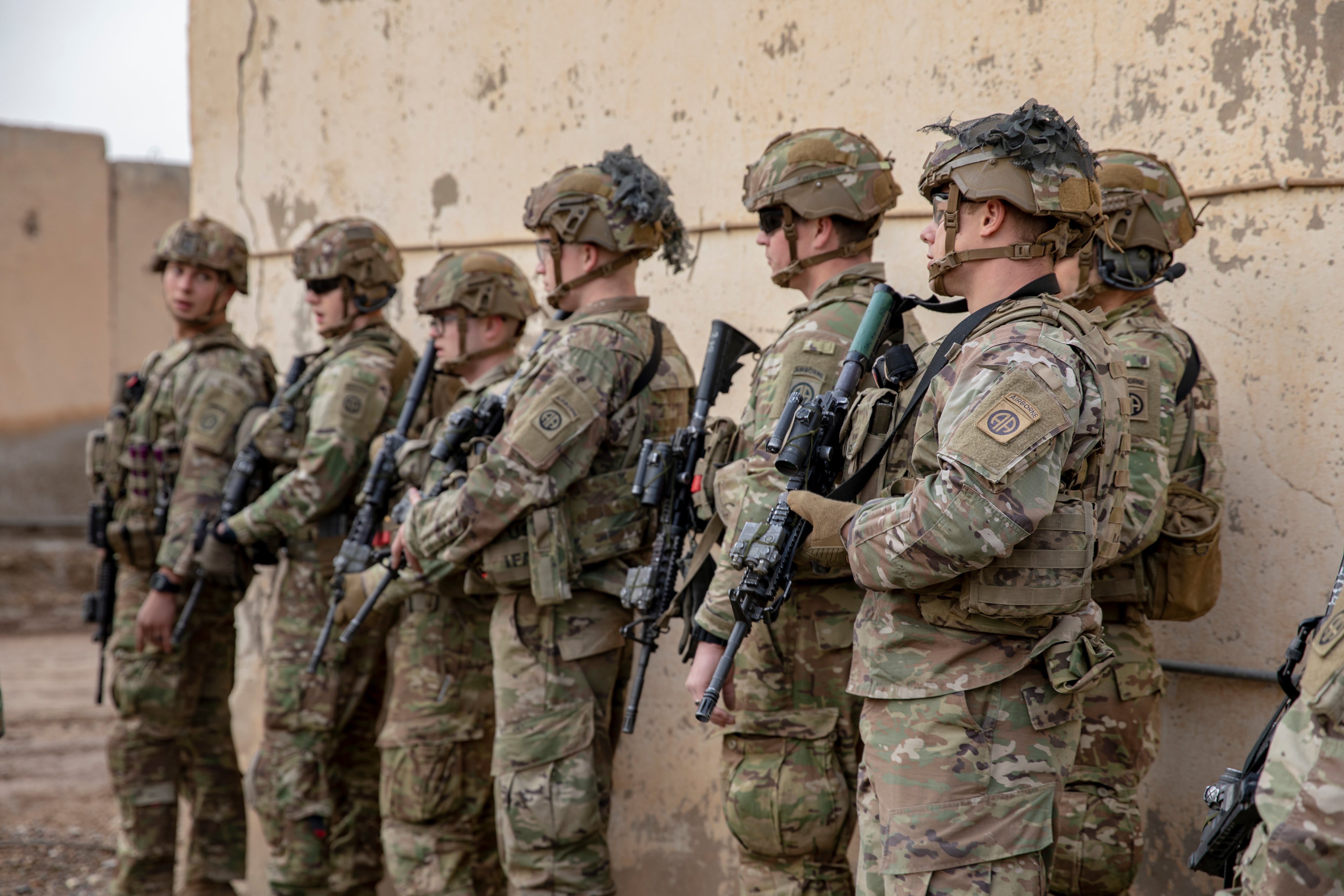Paratroopers from the 82nd Airborne Division who were sent to Kuwait and Iraq amid heightened tensions with Iran in January began to trickle home about two months later, but the coronavirus pandemic and ongoing rocket attacks have slowed their return, Pentagon leadership said Thursday.
About 3,500 paratroopers were sent to the region from the division’s 1st Brigade Combat Team. Roughly 800 were brought home to Fort Bragg, North Carolina, in February.
But with tensions still flaring intermittently between U.S. forces and Iranian proxies, it remains unclear when the rest of the brigade will return to their families after leaving for the short-notice deployment days after Christmas.
“We redeployed one of the maneuver battalions," said Chairman of the Joint Chiefs of Staff Army Gen. Mark Milley. "But the remainder of the brigade combat team has stayed there, in part, because of the COVID crisis, but also in part because the situation with Shia militia groups and Iran, etc., has not 100 percent settled down.”
The paratroopers were the centerpiece of a rapid response force pushed to the region after a series of escalations between the United States and Iran, which culminated in a U.S. drone strike that killed Iranian Quds Force commander Gen. Qassem Soleimani.
“But we are monitoring — almost daily, actually — to determine exactly when to bring them home," Milley added. “The secretary is very keen on bringing them home, but it’s dependent on the overall security situation between Iraq and Iran.”
Tensions fizzled out after Iran responded to Soleimani’s death with a ballistic missile strike on an Iraqi air base that housed U.S. troops and resulted in several dozen traumatic brain injuries among the Americans there.
RELATED

Rocket attacks by Iranian-aligned militias have continued, though, including a mid-March incident that killed an airman and a soldier at Camp Taji, north of Baghdad. Those deaths came three months after the December rocket attack that killed an American contractor at an Iraqi base in Kirkuk, which brought the United States and Iran to the brink of wider conflict.
The 82nd’s response force capability is still needed in the region, Milley said, because threats like those have not subsided.
The 82nd was also managing the redeployment of its 3rd Brigade Combat Team back from a nine-month rotation to Afghanistan when the coronavirus pandemic began. Paratroopers who returned home in March were sent into a two-week quarantine on Fort Bragg.
At this point, all of the paratroopers from 3rd Brigade have completed their redeployment, according to 82nd spokesman Lt. Col. Mike Burns. He also pushed back against the idea that 1st Brigade is “stuck” in Kuwait.
“I would argue that ‘stuck’ isn’t exactly accurate,” he said in an email. “They aren’t stuck. Their deployment is conditions based and in the eyes of [U.S. Central Command], the conditions have not been met for them to return.”
CENTCOM has struggled to deter rocket attacks in Iraq that U.S. officials say are conducted on behalf of Tehran by its proxies. The command has come under criticism, though, for not fielding C-RAM systems to defend against the rocket attacks that have plagued Iraqi bases for months.
Two Patriot missile batteries were recently sent to Al-Asad Air Base and Irbil Air Base, three months after the ballistic missile attacks by Iran.
Kyle Rempfer was an editor and reporter who has covered combat operations, criminal cases, foreign military assistance and training accidents. Before entering journalism, Kyle served in U.S. Air Force Special Tactics and deployed in 2014 to Paktika Province, Afghanistan, and Baghdad, Iraq.




